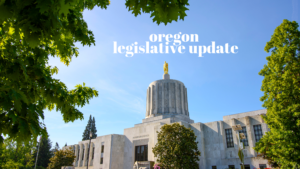Genny Kiley
-

Emerge Law Group Announces 2023 Oregon Super Lawyers & Rising Stars
We are pleased to announce that four attorneys at Emerge Law Group have once again been recognized as Oregon Super…
-

The Craft Beverage Industry Expands into to the Cannabis Space and Vice Versa
Author: Jake Cormier As the markets for legal cannabis continue to expand nationwide, companies continue to develop new products to…
-

Starting the New Year in California Cannabis
There hasn’t been a dull moment in the California cannabis industry since the passage of Proposition 64, and rolling into…
-

Genny Kiley Speaks at NCIA’s 7th Annual Cannabis Business Summit
On December 16, 2021, shareholder Genny Kiley moderated the Legacy to Craft: Social Equity, Appellations, and Interstate Commerce panel at…
-

Two Emerge Attorneys Named Oregon Super Lawyers in 2021
We are excited to share that the 2021 Oregon Super Lawyers list has honored two of Emerge’s Oregon-based attorneys. Super…
-

What the Sessions Memo Means for California
Yesterday morning, Attorney General Jeff Sessions issued a memorandum upending existing federal policy regarding enforcement against states with legalized cannabis.…
-

California Releases Draft Medicinal and Adult-Use Regulations
California Releases Draft Medicinal and Adult-Use Regulations On Thursday, November 16, the three (3) California cannabis-licensing agencies released draft emergency…
-

Oregon Legislative Update (Part 3): What You Need To Know About SB 1015
On June 29, 2017, Governor Brown signed a bill impacting Oregon’s hemp industry into law. SB 1015, which goes into…
-

Oregon Legislative Update (Part 2): What you need to know about HB 2198
Just days before the end of the 2017 session, the Oregon legislature passed a major cannabis-related bill. Surviving a relatively…
-

Oregon Legislative Update (Part 1): What you need to know about SB 1057
The Oregon Legislative Assembly adjourned on Friday, July 7, 2017. As the dust from this session settles, the State of…
-

Oregon Governor Brown Signs SB 56
Today, Oregon Governor Kate Brown signed SB 56 into law. This law is effective immediately and contains several anticipated fixes…
-

Oregon SB 56 Passes: Key Changes to OMMP and OLCC Laws
Today, the Oregon legislature passed Senate Bill (SB) 56, which contains several of the anticipated “fixes” to the cannabis regulatory…
-

California: Legislature Passes Trailer Bill, Reconciling Medicinal and Adult-Use Laws
Yesterday, the California legislature passed Senate Bill 94, known as the “2017-18 Budget Trailer Bill” (BTB). The BTB reconciles the…
-

October 1: Five Tips for Oregon Dispensaries
There are significant changes to the Oregon Medical Marijuana Program that will take effect on October 1, 2016. In recent blogs…
-

Emerge Wins Inaugural Dope Industry Award for Best Law Firm in Oregon
Emerge Law Group is honored to have been voted the Dope Industry Award for Best Law Firm in Oregon by…
-

Organic Marijuana: Another Problem With Federal Law
Is there such a thing as organic marijuana? Like most things in the industry, the answer isn’t simple. Many cultivators…
-

MBank to abandon cannabis industry banking
MBank announced today that it will close all of its accounts with marijuana businesses in the next few months. The…